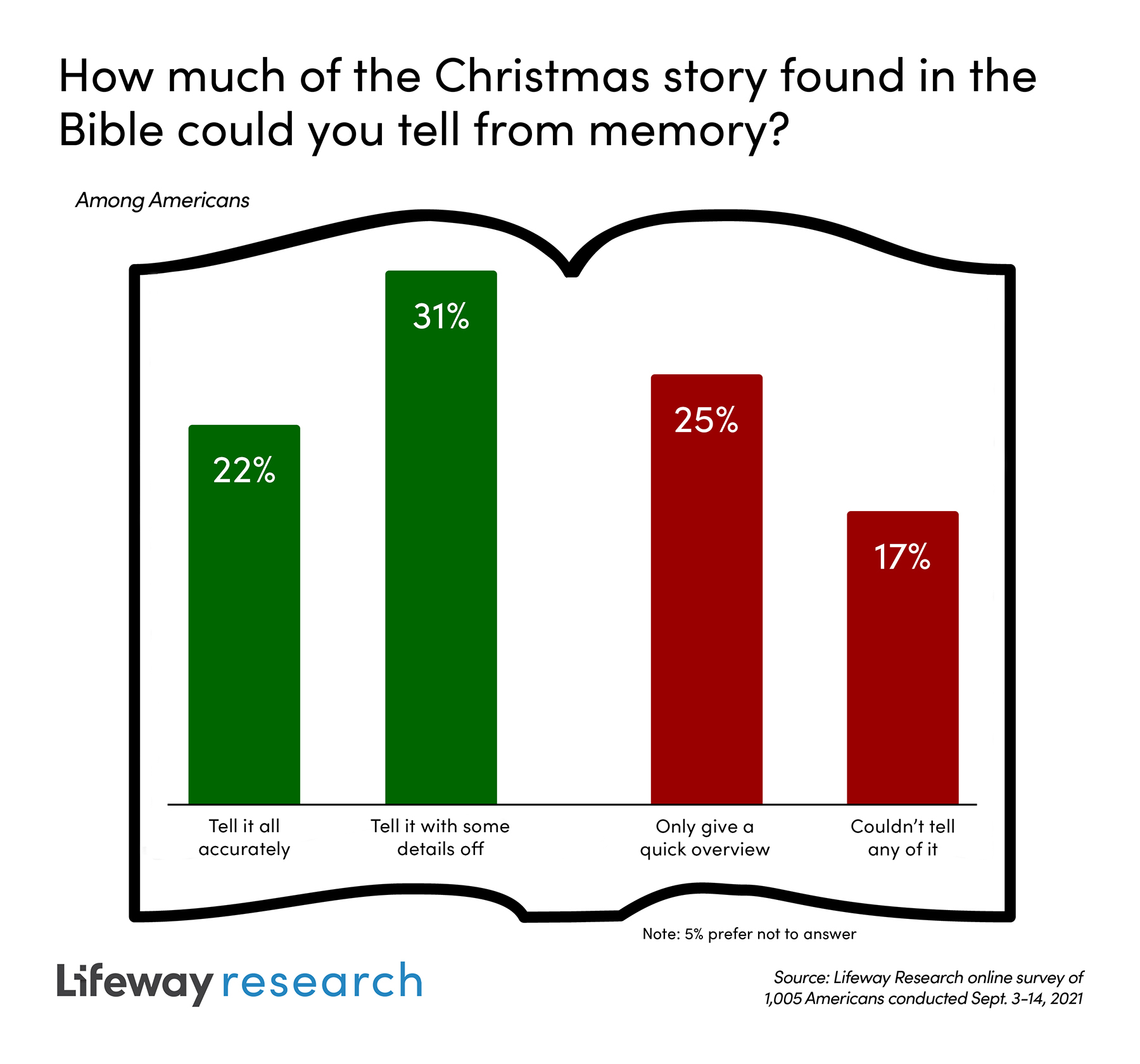Most people in America may hang Christmas decorations and exchange gifts on Dec. 25, but few say they could give all the details about the biblical Christmas story.
A Lifeway Research study finds 9 in 10 U.S. adults say they celebrate Christmas, including many non-Christians. Overall, 91 percent of Americans celebrate the Christmas holiday, unchanged from 2010.
“Americans may celebrate the Christmas holiday in many different ways, but very few skip a Christmas celebration completely,” said Scott McConnell, executive director of Lifeway Research. “Even many of those who aren’t as familiar with the story of Jesus’ birth find ways to observe the holiday.”
Catholics (99 percent) and Protestants (97 percent) are most likely to commemorate the day of Jesus’ birth. Still, significant majorities of Americans of other religions (74 percent) and those with no religious affiliation (82 percent) also celebrate Christmas. Women (94 percent) are more likely than men (89 percent) to observe the holiday.
Geographically, the most Christmas spirit may reside in the Midwest (94 percent), as residents there are more likely to say they celebrate than those in the Northeast (88 percent).
Christmas confusion
In a 2018 Lifeway Research study, 65 percent of Americans said Christmas should be more about Jesus. While 2 in 3 may want more Christ in Christmas, most couldn’t give you all the details of Jesus’ birth story.
 Slightly more than 1 in 5 Americans (22 percent) say they could accurately tell the Christmas story found in the Bible from memory. A plurality of U.S. adults (31 percent) say they could tell the story but may miss some details or get others wrong. Another quarter (25 percent) could only give a quick overview, and 17 percent say they couldn’t tell any of it.
Slightly more than 1 in 5 Americans (22 percent) say they could accurately tell the Christmas story found in the Bible from memory. A plurality of U.S. adults (31 percent) say they could tell the story but may miss some details or get others wrong. Another quarter (25 percent) could only give a quick overview, and 17 percent say they couldn’t tell any of it.
“While fictional Christmas stories seem to multiply each year, the biblical account of Jesus Christ’s birth is unchanged since it was recorded in the Bible,” McConnell said. “Yet almost half of Americans do not think they could share the Christmas story somewhat accurately from memory. Of all the Christmas programs churches offer in December, possibly the most important is simply reading the biblical account of the Christmas story itself.”
More church means more Christmas story recollection among self-identified Christians. Those who attend a worship service four times a month or more (45 percent) or 1 to 3 times a month (24 percent) are more likely than Christians who attend less than once a month (13 percent) to say they could tell all the biblical story accurately.
More education also grants more Christmas confidence. Americans with a graduate degree (35 percent) or bachelor’s degree (26 percent) are more likely than those with some college (19 percent) or a high school diploma or less (18 percent) to say they could relay the complete story.
Americans with evangelical beliefs are three times as likely as those without such beliefs to say they could accurately tell the full biblical Christmas story from memory (46 percent to 15 percent).
The religiously unaffiliated are least confident in their recollection of the story. Only 1 in 10 (10 percent) say they could retell the whole Christmas story from the Bible, fewer than any other religious demographic.
For more information, view the complete report here or visit LifewayResearch.com.
— Aaron Earls is a writer for Lifeway Christian Resources.
